Updated 1 month ago
Cheap Solar Panels 2025: Guide to Affordable Solar Panels
Written by
Jamie Smith
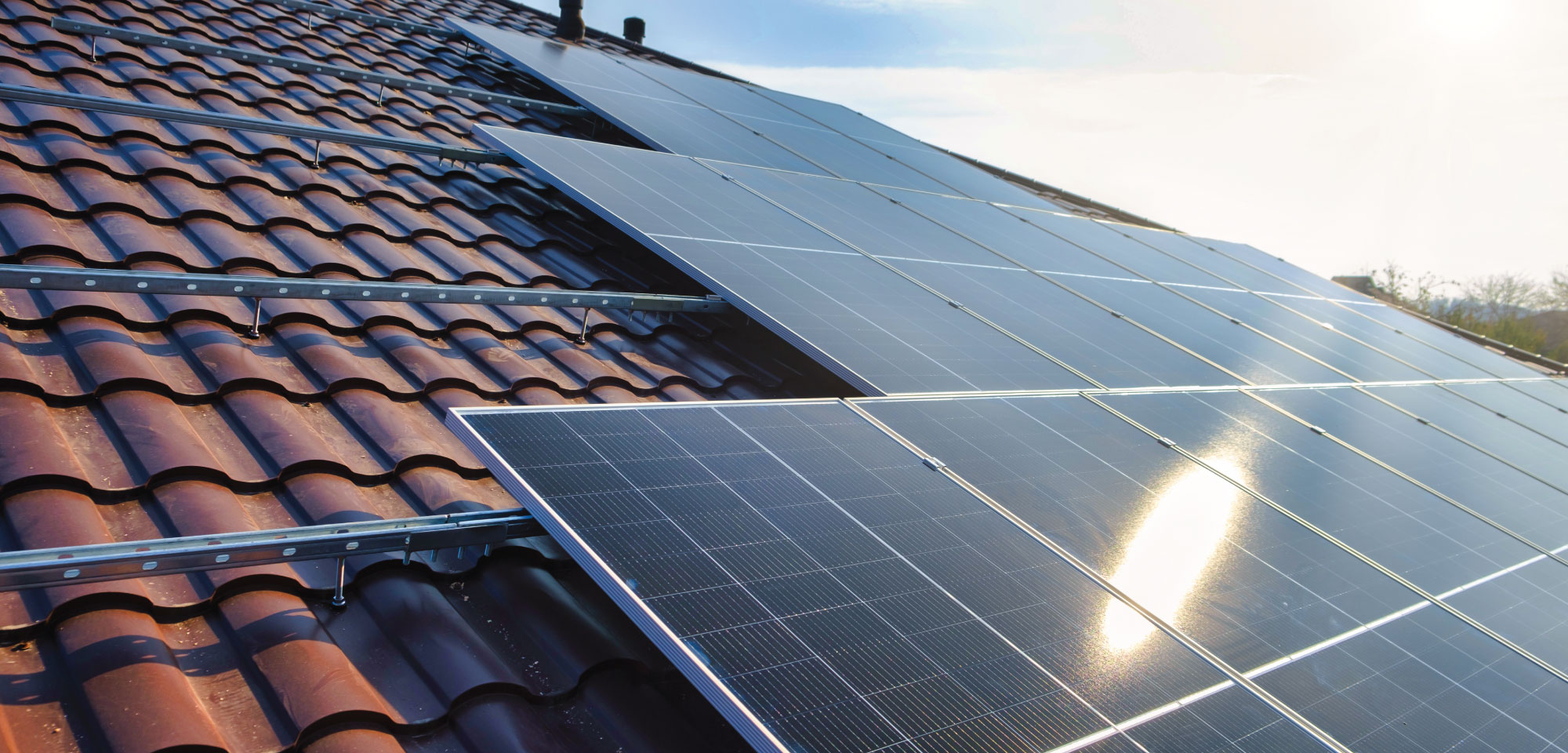
Use this calculator to get solar panels to save an average of $12,000 on a solar installation
One of the biggest barriers to getting solar panels is the high upfront cost. As of 2025, the average cost of home solar installations is between $18,000 and $23,000.
Cutting corners can save you money, but you don't want to sacrifice quality when it comes to an investment like solar. We've compiled a list of reliable, low-cost solar panels that produce great results to provide the best of both worlds. Our top picks for cheap solar panels are:
Brand | Model | Average cost per watt |
|---|---|---|
Hi-MO5 LR8-48HPB | $2.40 | |
HiKu 6 CS6R-400 | $2.60 | |
Q.PEAK DUO ML-G10+ | $2.63 | |
JAM54S30/MR | $2.80 | |
TSM-DE09C.05 | $2.80 |
5 best affordable solar panels
Our experts reviewed solar panels from reliable brands to find which ones have the best value. Keep in mind, cheap doesn’t always mean good! There may be cheaper modules out there, but the quality would likely be low.
1. LONGi: Hi-MO5 LR8-48HPB
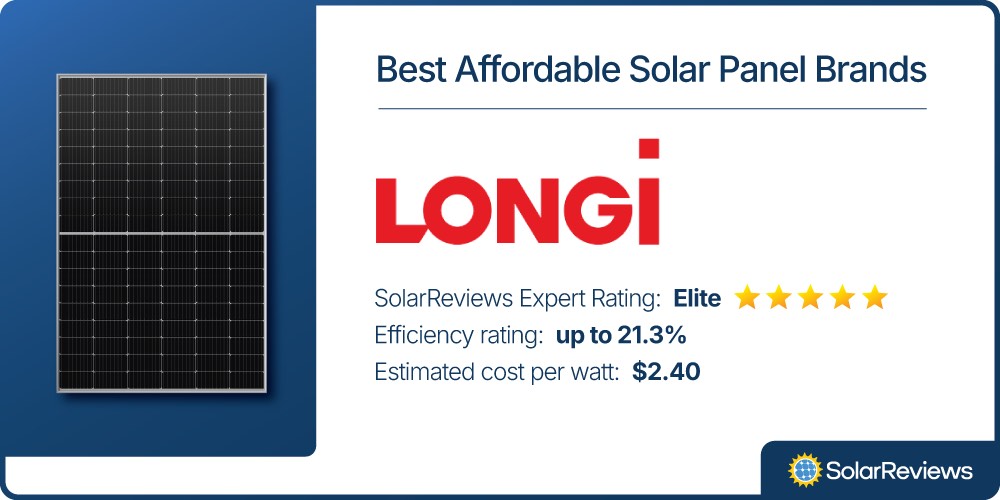
Pros
-
Best value
-
High efficiency
Cons
-
High temperature coefficient
-
Average product warranty
Why we chose them: LONGi solar panels are not only the cheapest solar panels on this list at $2.40 per watt, but they also hold their value. LONGi’s solar panels are built with PERC technology, which allows for high efficiency ratings.
These high-quality panels are backed by a 12-year product and 25-year performance warranty that guarantees its panels will retain at least 84.8% of their output by the end of the term.
There are other panels out there with better warranty coverage. However, LONGi panels still check off all the boxes for being a reliable brand at a great value. LONGi solar panels are the best option for cheap solar panels that still produce great results.
2. Canadian Solar: HiKu 6 CS6R-400
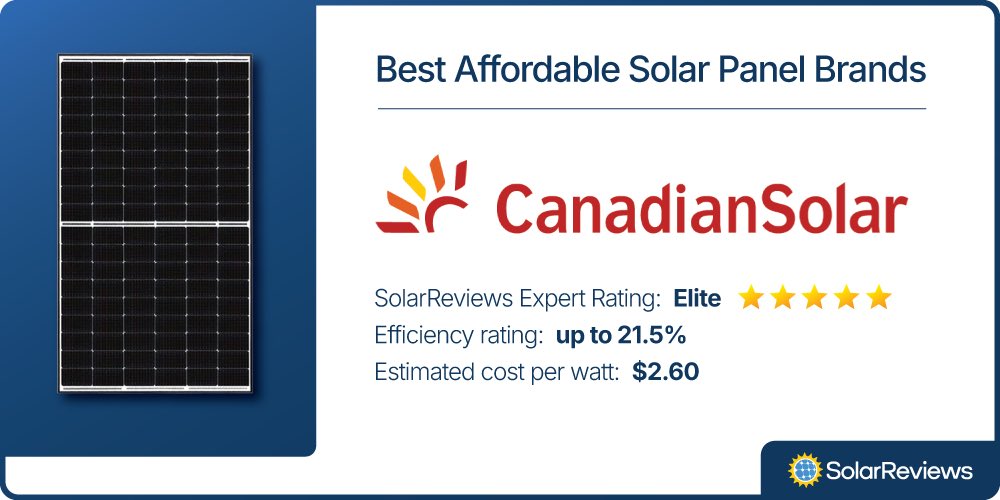
Pros
-
Great warranty
-
Reputable solar manufacturer
Cons
-
Degrade faster than competitors
Why we chose them: Canadian Solar is a highly admired brand by SolarReviews. As one of the top five solar manufacturers in the world, there’s a good chance the installer you work with will recommend these panels. This brand offers several high-efficiency models that come at a great value.
Most models from Canadian Solar have a standard 12-year product warranty and a 25-year performance warranty, with a degradation rate of 0.55% per year. Warranty coverage for this manufacturer falls within industry standards, but other brands are out there with better coverage.
3. Qcells: Q.PEAK DUO BLK ML-G10+
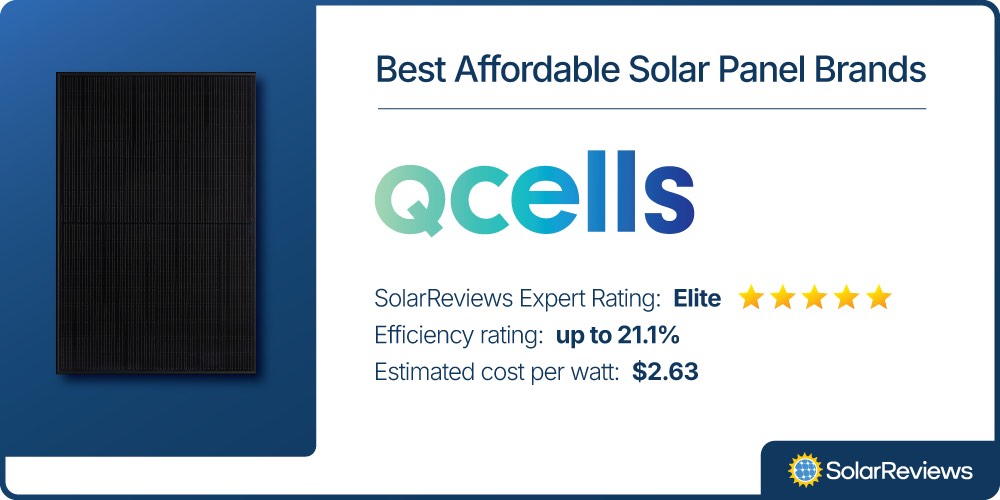
Pros
-
Good warranty
-
Reputable brand
Cons
-
Lower efficiency
Why we chose them: Qcells is an extremely reliable solar panel brand. With all that Qcells has to offer, it landed the #1 spot on our best solar panels of 2024 list.
Qcells warranty offers a 25-year product and 25-year performance warranty, promising the panels will operate at 86% of total output by the end of the warranty period, with a 0.5% degradation rate.
As for affordability, Qcells residential panels cost roughly $2.63 per watt, which is below the national average for solar panels. Qcells has a great reputation among installers and homeowners alike, so you can trust that you’re getting quality solar panels without breaking the bank.
4. JA Solar: JAM54S30/MR
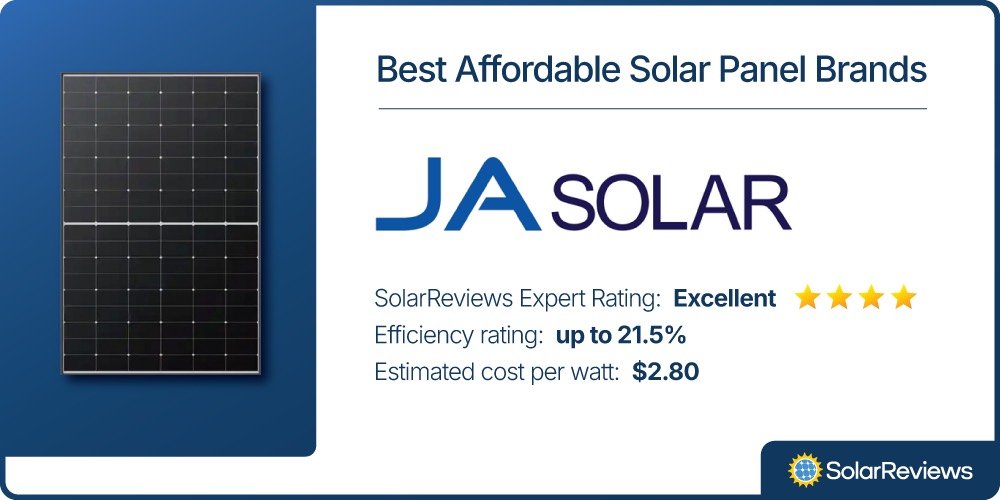
Pros
-
Excellent customer reviews
-
Great technology
Cons
-
Average warranty
Why we chose them: JA Solar is a Chinese manufacturer with several global offices, including one in San Jose, California. Like others on this list, JA panels offer half-cut cells and PERC technology to boost efficiency.
JA Solar’s warranty offers a 12-year product replacement warranty and a 30-year performance warrant, guaranteeing no less than 82.5% at the end of the 30-year period.
JA panels are also one of the pricier options on this list, costing an average of $2.80 per watt. Despite this, they still come in under the average cost of solar, and JA has proven to be a fan-favorite on the SolarReviews website, with no ratings under four stars!
5. Trina Solar: TSM-DE09C.05
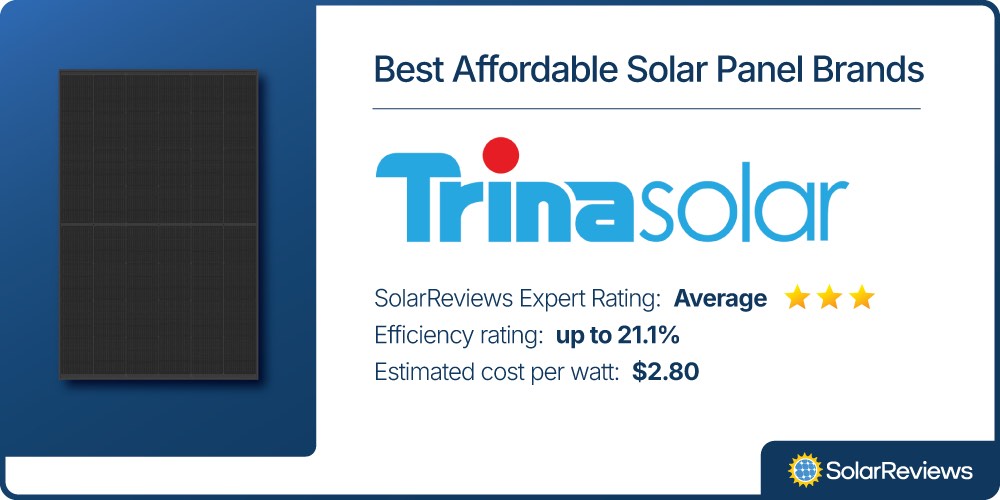
Pros
-
Great warranty
-
High-quality panels
Cons
-
Low SolarReviews rating
-
Higher cost
Why we chose them: This China-based manufacturer is a well-established solar panel brand offering cutting-edge technology. Trina Solar provides a 25-year product and performance warranty. The performance warranty promises at least 84.8% output after the 25-year warranty period.
While we’d like to see Trina Solar get its ratings up and higher efficiency rates – the excellent warranty coverage makes up for it. This brand averages $2.80 per watt installed, which is below the national average of $3.03 per watt, so you’re still seeing a great value.
Cheap solar panels price comparison
The table below outlines how much you can expect to pay for the average 6 kilowatt (kW) installation when using each of these brands.
Solar panel brand | Cost per watt | Installation cost (6 kW)* |
|---|---|---|
LONGi | $2.40 | $14,400 |
Canadian Solar | $2.60 | $15,600 |
Qcells | $2.63 | $15,780 |
JA Solar | $2.80 | $16,800 |
Trina Solar | $2.80 | $16,800 |
*before incentives
It’s important to note that everyone’s installation cost will vary. Factors such as location, how many solar panels you install, and what installation company you use will impact the total price.
How can I save money on a solar panel installation?
Through incentives, rebates, and other unconventional methods – there’s a few ways you can save some money on a solar panel installation.
Federal solar tax credit
Right now, the best incentive for going solar is the 30% federal solar tax credit, which equals 30% of installation costs and reduces what you owe in federal income taxes by thousands of dollars.
The average solar installation costs around $20,000, meaning you’ll receive a tax credit of $6,000.
Local solar rebates and incentives
Different states, municipalities, or utility companies may offer incentives for going solar that can help reduce the solar installation cost. This can come as a tax credit, an upfront rebate, or a performance-based incentive.
Local incentives are also available to those who install battery storage with their solar installation, and low-income solar programs to help qualifying households go solar.
DIY solar panels
You can install solar panels yourself to cut installation costs by purchasing a DIY solar panel kit. Saving money is always a plus, but we do not recommend DIY installations for rooftop solar.
Installing solar panels yourself is risky for most homeowners unless you have experience with construction and electrical work.
Also, some utility companies may not even allow you to interconnect your solar system to the grid unless installed by a professional installer – meaning you’ll lose out on net metering or other available utility incentives.
Installing panels yourself also risks voiding the solar panel or roofing warranty. So, you’ll save a bit of money on installation but risk a poorly installed solar system that may not be covered under any warranties. Take our advice and hire a professional to avoid any headaches.
Used solar panels
You can find cheap solar panels from private sellers online that can save you hundreds on materials. If you want to utilize solar technology, used solar panels can be a solid option for small-scale projects.
We do not recommend purchasing used solar panels on a rooftop home solar installation. Instead, consider looking into refurbished solar panels because they have been restored to an acceptable working condition. If you want the best results for residential solar, consult a professional who uses reliable solar panel brands (like the ones in this article!).
Net metering
Net metering is the utility billing practice of recording the excess energy generated by a solar panel system and applying that excess energy on the customer’s bill as a credit towards energy drawn from the grid.
In other words, if your solar system generates more energy than your home consumes, you can sell that excess energy to your utility provider instead of letting it go to waste. In turn, you save additional money on your electricity bills through these credits.
Net metering policies differ depending on where you live and your utility. To learn more about the net metering benefits you can take advantage of, visit your local utility’s website.
Compare solar quotes
Comparing solar quotes is a great way to educate yourself and help save money on your solar installation.
We recommend obtaining at least three solar quotes from local installers to compare the best price for your budget. Looking at fewer solar quotes could mean paying more for a service that another company could charge less for!
Can I finance my solar panels?
If you cannot entirely pay for your solar system out of pocket, you have the option to finance your project through a solar loan, lease, or power-purchase agreement (PPA).
Solar loan: Loans are a great way to pay for a solar installation in monthly payments rather than in one lump sum, while also saving money on your electric bills. However, financing through a loan will make your solar installation more expensive with interest rates and dealer fees.
Solar lease/PPA: Through leases and PPAs, you can install solar panels for $0 down. The solar company owns your panels for a contracted period of time, meaning the company is entitled to any incentives and rebates. By choosing these options, your savings will be less than if you were to own the solar panels directly.
For more information on financing options: Solar financing: What’s the best way to pay for solar panels?
Cheap solar panels: Methodology
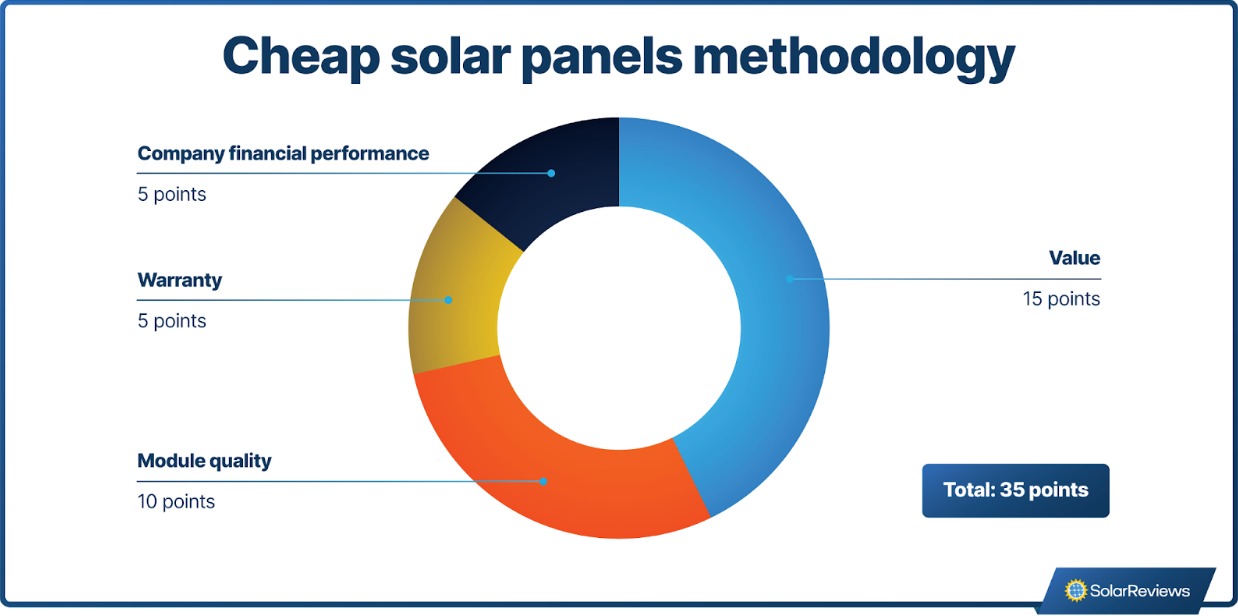
Our solar experts analyzed top solar brands to find the brands that offer the best price without sacrificing quality or reliability.
We looked at four scoring criteria: Value, Module quality, warranty, and company financial performance.
Value (15 points): We looked at the average wholesale selling price of the panels in container volumes landed in the United States. The lower the wholesale price, the higher they scored.
Module quality (10 points): We considered each module’s specifications, including efficiency, temperature coefficient, and bonus points if the modules were listed on the PVEL scorecard. The better each panel performs, the higher the score.
Warranty (5 points): We looked at the product and performance warranties to ensure the panels recommended come protected and built to last. Panels scored higher if they had a product warranty greater than 15 years. For performance, the lower the degradation rate, the higher the score.
Company financial performance (5 points): To be sure that the manufactures we recommend are also in good standing, we reviewed the financial performance of each company. Points were awarded for revenue, revenue growth, and a positive net profit margin. A bonus point was also given to publicly traded companies, and companies with financial statements available.Cheap solar panel FAQ
Are cheap solar panels any good?
Cheap solar panels can be good quality, if you seek out the right brand. When it comes to performance and overall quality, there are plenty of solar panels out there that come at a lower price than the national average but still perform well.
If you plan on choosing a full-service installer for your solar system, you might find that sometimes the only difference between the ‘cheap’ option and the ‘industry standard’ option is only about a 5% to 10% price increase.
If you aren’t sure about solar panels for your specific home, put your information into our solar calculator to learn more about solar costs and savings to make an informed decision.
Affordable solar panels: FAQs
Curious about buying low-cost solar panels and beginning your solar journey? Here are some frequently asked questions you might want to know.
Jamie is a Content Writer and researcher at SolarReviews. A recent graduate of La Salle University in Philadelphia, Jamie earned her B.S. in communications with a concentration in journalism, mass media, and public relations. Jamie has previously worked at a marketing company where she had the opportunity to highlight and promote small business owners through long-form stories and interviews. With a deep-rooted passion for creativity, Jamie stri...
Learn more about Jamie Smith